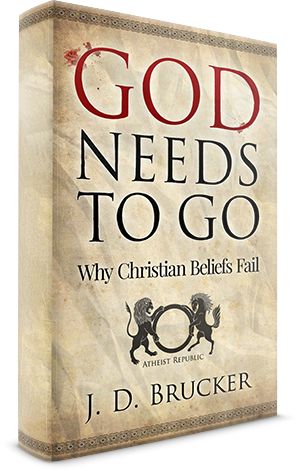Anyone heard about these? I just learned they exist!
Wikipedia: Health care sharing ministry - Health care sharing ministries are organizations in the United States in which health care costs are shared among members who have common ethical or religious beliefs. A health care sharing ministry does not use actuaries, does not accept risk or make guarantees, and does not purchase reinsurance policies on behalf of its members.
Subscription Note:
Choosing to subscribe to this topic will automatically register you for email notifications for comments and updates on this thread.
Email notifications will be sent out daily by default unless specified otherwise on your account which you can edit by going to your userpage here and clicking on the subscriptions tab.





























Are you taking about a cooperative?
Australia had private health funds from I think the 1930''s .They tended be private men's organisations such as Oddfellowes ,and were government regulated,
The private health fund to which I now belong began as one of those .
I don't feel comfortable answering that, as I don't know much about the heath insurance industry. But as I understand it, these schemes rely on prayer to deal with large medical costs (instead of payment of the bill by pooling risk); which is presumably very different than what you seem to be talking about.
Just wondering if anyone knows anything about them.
Prayer?
Nah, nothing like our heath l funds.,
Short true story;: When I was a gossoon , my mum had this lovely lady friend. The lovely friend was a Christian Scientist, and did nor believe in conventional medicine. That dear ,lovely lady contracted cancer and died. My mum and I cried . The End.
I also belong to a State based (now national) Not for Profit Health Fund.
Although all our Health funds are regulated as insurers.
I've heard a radio advertisement here in the US describing these, I think when I click over to the Rush Limbaugh show (I do like to hear from ALL sides). It sounded like a cooperative for the praying kind but I haven't looked into it.
The New York Times just had an article on these in the US. They are NOT insurance companies, no matter what the payers think. They DON'T guarantee payment. They are cheap for people who can't afford the ACA policies with VERY limited maximum payouts. They cover a few small things. Catastrophic costs are - Trust in Jesus.
That may have been the article that originally got my attention (NY Times).
What a sick scam on gullible people. They can not be audited, and any denied claim is just "that's god's way, pray harder".
That part that is painful for me to absorb is that I feel for those conned fools. This is just one more example of the damage religion causes.
I agree, but how dumb must someone be to think prayer will help with some medical conditions, but you need insurance for others.
Thank you for your review of health care sharing ministries. These organisations can be a great option for people who share similar religious or ethical beliefs, as they allow costs to be shared among a group. I am glad that I found Andersen and would recommend them to anyone who is looking for a health software development company.
Health is our greatest value
Agree with you
Well what i think is that we need to pay a proper attention to our health
In addition to medical professionals, I sought the guidance of a knowledgeable fitness coach. Their expertise helped me create a personalized training program that complemented the effects of the steroids. Working with https://misterolympia.shop/buy/oral-steroids/anavar-for-sale/ a professional allowed me to optimize my workouts and maximize the benefits of my steroid usage.
We know that when you're committed to your fitness journey, time is of the essence. That's why we offer fast and reliable delivery services to ensure you receive your sport supplements promptly. Our streamlined order processing and efficient logistics network enable us to dispatch your products quickly, so you can start reaping the benefits sooner. Whether you're a professional athlete or a fitness enthusiast, we understand the importance of receiving your supplements in a timely manner, and we strive to exceed your expectations. Stop by here: bulking.store/
Yes, health care sharing ministries are indeed an interesting concept that has gained attention in recent years. These organizations provide an alternative approach to managing health care costs by allowing members with similar ethical or religious beliefs to share those expenses collectively. It's worth noting that health care sharing ministries differ from traditional insurance models. They typically do not involve the use of actuaries, risk acceptance, guarantees, or the purchase of reinsurance policies. Instead, members contribute funds that are then distributed to cover eligible medical expenses.
If you're exploring health care options and looking for financial assistance in Mississippi, platforms like https://paydaysay.com/payday-loans-in-mississippi/ can provide resources and support in times of immediate financial need. As with any health care decision, it's important to carefully evaluate the specifics of each health care sharing ministry and consider factors such as eligibility requirements, coverage limitations, and the compatibility of the ministry's principles with your own beliefs.
Attachments
Attach Image/Video?:
Look it here https://brainwavetrail.com/how-to-get-guardianship-of-a-child-in-foster-.... Health care sharing ministries are organizations in the United States where members with similar religious or ethical beliefs share each other's medical expenses. They operate on the principle of shared responsibility and do not function as insurance companies. Members pay a monthly share that is used to cover the medical costs of other members.
However in https://brainwavetrail.com/the-best-time-to-drink-coffee-for-weight-loss/, participation does not guarantee full coverage, and eligibility criteria based on religious beliefs and lifestyle choices may apply. Health care sharing ministries are not regulated like traditional insurance providers and may not offer the same level of coverage or protection. Individuals considering this alternative should carefully assess the benefits, limitations, and risks involved.